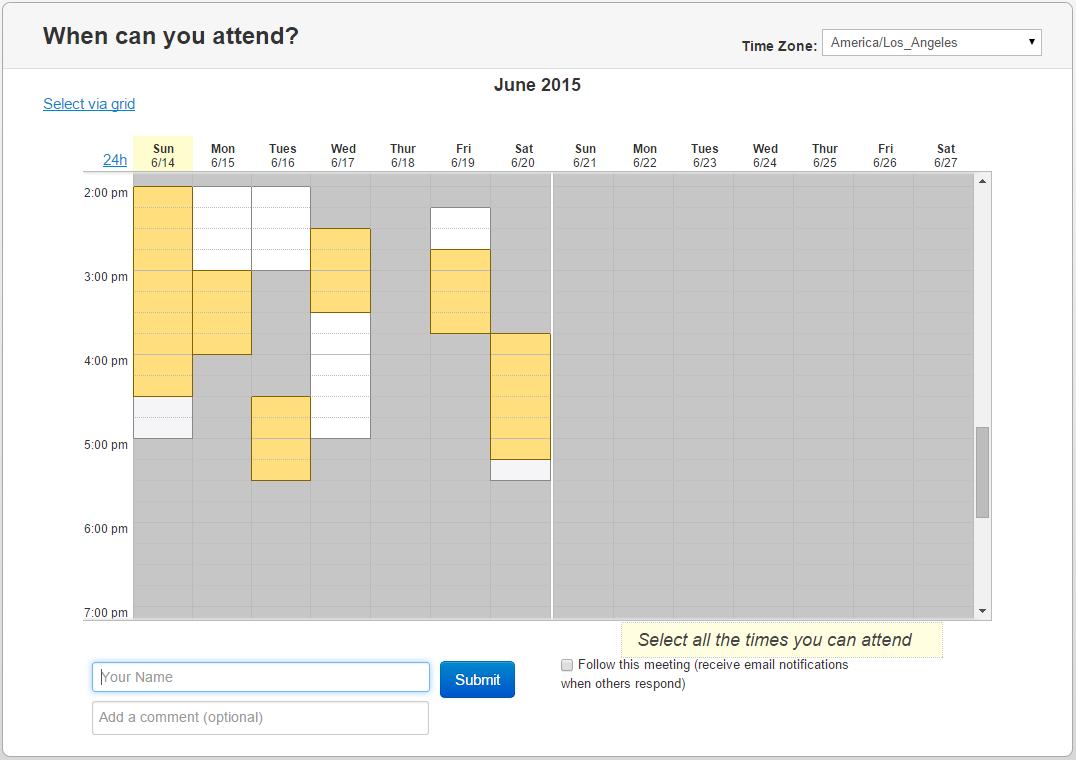
Managing Virtual Teams
Today’s Post is introduced by Thomas Powell, CEO of PINT, Inc.
– Usability-focused Web analytics- Bot detection and defense of content scraping- Anti-rigging mechanisms for review systems- A variety of Web frameworks and patterns
Unfortunately, since most of these efforts were from non-publishing undergrads, only a few people got to benefit from them. So starting this quarter, I’ve decided to surface some of this work and encourage sharing since there may be lessons and inspiration of value to others. Read on to see the first installment in this new series, about managing virtual teams.
During the Spring quarter of 2015 I had the great honor of working with Lovelle Cardoso who is a very inspiring and driven young computing professional. Her outside project involved designing and building a large scale game using a wide range of artistic and coding volunteers from around the world. After talking with Lovelle, an interesting idea emerged. While she had successfully run her project for years, there were many ways she could improve the cohesion and morale of her team, and potentially increase their development rate. Today’s blog post will summarize some her findings on how she has been able to use technology to collaborate (and now incentivize) work on an expansive and long running project. Take it away Lovelle…
Managing Virtual Teams: 5 Free Tools to Facilitate Online Collaboration
By Lovelle Cardoso (aka Lynxelia Nyx)
With the internet connecting billions of people from around the world, collaboration is now possible on a wholly unprecedented scale. Whether you are a business looking to expand your workforce overseas, or a group of individuals using the web to communicate and work together online, there are countless tools which can help your team overcome the barriers inherent to virtual collaboration. However, sorting through this vast array of products and platforms can be overwhelming. To help, I hope to share recommendations for tools which helped my own virtual team reach its full potential.
First, a bit of background: I am the executive director of Improbable Studios, a global video game development staff composed of over 100 artists, writers, programmers, and audio engineers from about 40 countries around the world. We are a non-profit organization dedicated to promoting global interdisciplinary collaboration through the creation of international digital projects. As such, our choice of tools was very much informed with these goals and our organization’s relatively unique structure in mind.
First of all, our organization operates entirely online: we have no physical home office, so all of our meetings, communications, and contributions take place in the virtual sphere. Secondly, our organization is run not-for-profit, so any platforms we used for collaboration needed to be affordable. And finally, our staff is composed of hundreds of volunteers, so we needed an easy way to track, incentivize, and reward all of their contributions.
Though we have tested and used countless products and platforms over the years, there are 5 in particular that have stood out above the rest. The best part? They are entirely free.
1. Trello
There are many project management tools on the web, but none as easy-to-use and unrestricted as Trello. Trello is completely free for organizations of any size and will allow you to:
- Create tasks
- Assign members to them
- Set due dates
- Comment on them
- Update their status through the use of handy tools like cards, lists, and so much more.

Trello works exactly like an agile task board and has been absolutely invaluable to our team throughout our development. It’s a great way for team members to see the state of the project at a glance and report their own progress without the hassle of an unnecessarily complicated reporting system.
2. Slack
Communication is often the key to an effective team. So when team members work from home and don’t have access to a steady channel to talk with others, it can be disastrous for productivity. Slack answers this problem and then some.

We’ve tried many different chat platforms over the years, but we have never found one that makes team communication quite as simple as Slack. On Slack, you can create channels for various teams and topics, easily send messages, and search those messages later if you forget anything. In addition to its slick interface, Slack also integrates with many other services like Trello, Google Drive, Github and much more. These integrations let you automatically pull information and activity from outside tools into Slack in a way that’s timely, relevant, and searchable.
3. NeedToMeet
With team members scattered across different continents and time zones, scheduling online meetings can be a nightmare. Enter NeedToMeet: a tool that makes scheduling team meetings a breeze.

Many scheduling tools allow you to suggest times for others to vote on, but these tools are often plagued by limited features and clunky user interfaces. Unlike most scheduling tools, NeedToMeet has a powerful but easy-to-use interface which greatly simplified our scheduling process. With NeedToMeet, we can easily work around conflicts and time zones without the hassle of long, confusing email chains.
**4. Captain Up **
With games becoming an increasingly integral part of our everyday lives, it’s no surprise that many business have started applying the principles of game design to engage and motivate their workforce. However, few online platforms exist that allow you to track, incentivize, and reward work, while easily integrating with the management systems you already have in place.

To address this problem, our team turned to the free gamification platform: Captain Up. Captain Up is an engagement and social tool that offers badges, levels, messages, leaderboards and rewards for your community. Though its main purpose is to incentivize social media sharing, it can easily be repurposed to track and reward just about anything. For example, our team uses Captain Up to gamify our onboarding process and award each of our volunteers points for regularly contributing to our project through our various platforms (Trello, Slack, Google Drive, etc). These points can later be redeemed for tickets in our monthly prize raffles.
5. Google Apps
When it comes to sharing and collaborating on files, few do it better than Google. Most people are familiar with collaborating on Google Docs and sharing them through Google Drive.

However, one powerful feature that is often overlooked is the Google Apps Scripting system. Our team often uses this system to integrate our various project management platforms. For a good example of the power of Google Apps, check out this Google spreadsheet which describes how you can use Google Apps to integrate all the platforms I just mentioned:
Conclusion
As anyone who has worked on a team will tell you, collaborating with others isn’t easy. Teams—especially virtual ones—face numerous challenges that can impede their ability to communicate and collaborate effectively. However, as my own team’s experiences have shown, collaborating successfully in an online environment is not impossible. Many affordable tools exist to help decrease the friction and make your team’s interactions much more productive. As more of these tools become readily available, it is my hope that in the coming years, more and more individuals will choose to collaborate with others around the world in order to solve our most complex problems.
Lovelle Cardoso is an undergraduate attending the University of California San Diego. She is the founder and executive director of Improbable Studios, an organization dedicated to promoting interdisciplinary collaboration across country lines.